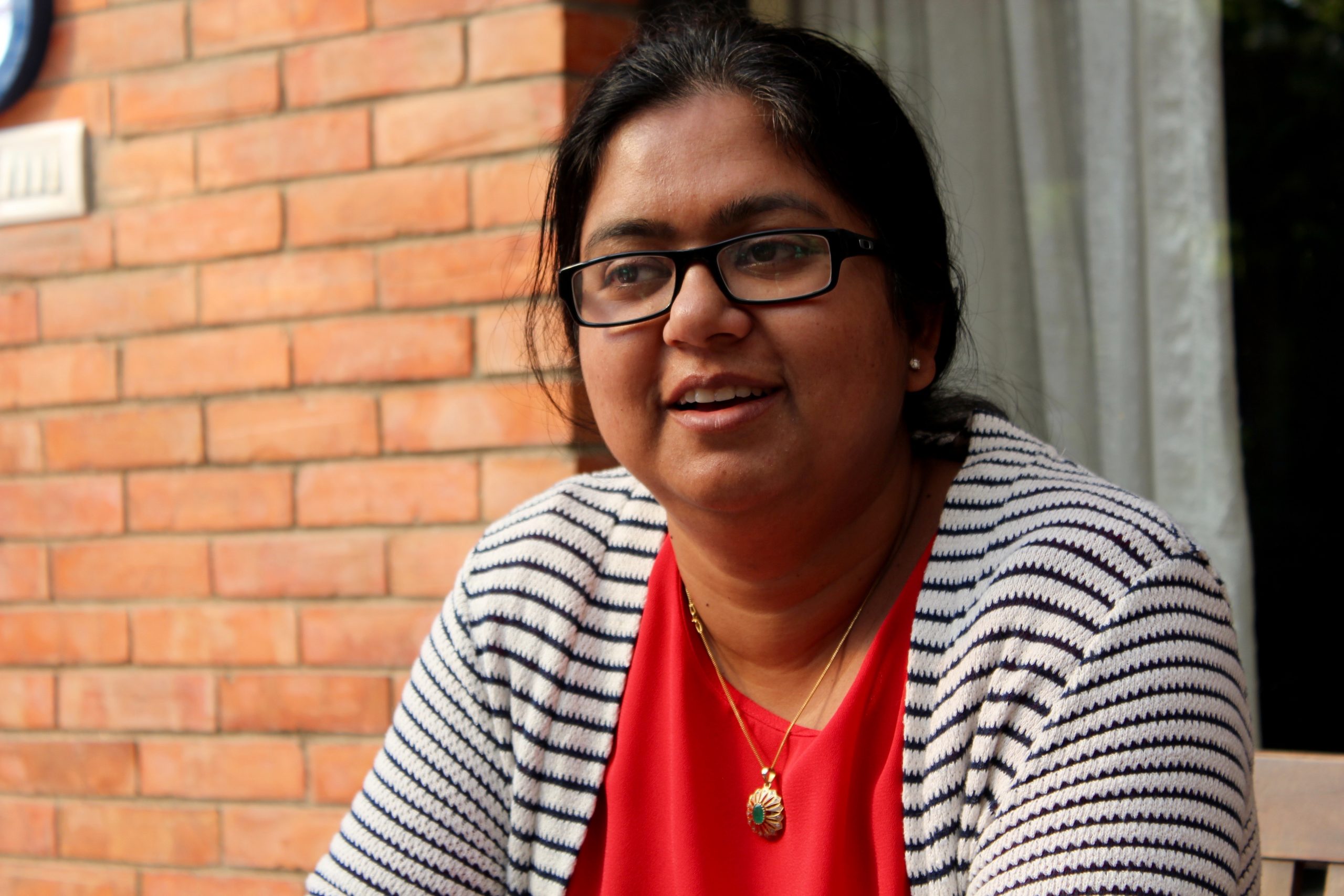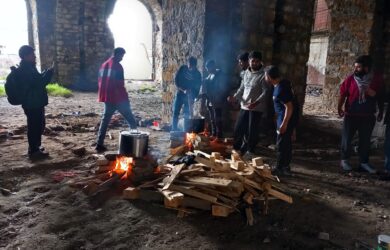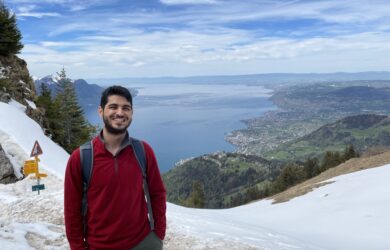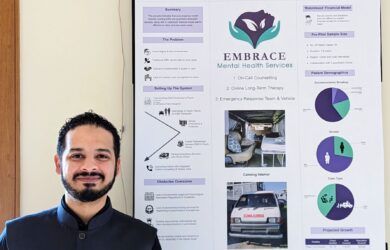
In the third of our 20th anniversary series, Aditi Mukherji talks about her campaigning work on local ground water issues.
What is clear is that, there are no silver bullet solutions, but everything is very context specific and something that seems positive in one context, may have negative effects elsewhere.
Aditi Mukherji
Aditi Mukherji’s PhD on groundwater access marked the beginning of a distinguished career which has seen her win an international prize for her work on eliminating global hunger and poverty, change water policy in West Bengal and be appointed as an author of the Intergovernmental Panel on Climate Change’s forthcoming report for global policymakers.
Aditi’s career in water management began after she completed her graduate degree at Jawaharlal Nehru University in Delhi followed by an MPhil at the Indian Institute of Technology in Bombay. Following her master’s she worked for over two years as a junior researcher at the International Water Management Institute, with Professor Tushaar Shah, a renowned water expert from India. She found the work fascinating. “I realised there that that was the kind of research I wanted to do, research which linked water and irrigation with agricultural and poverty reduction policies and set India’s water agenda,” she said.
Cambridge
Aditi [2003] applied to continue her research at Cambridge. She says that, without the Gates Cambridge Scholarship which she interviewed for in Delhi, she would not have been able to do her PhD in Human Geography. Being a Gates Cambridge Scholar was a real honour, she says. She still keeps a keen eye on new entrants every year and has helped to guide some of them in their process of applying for the scholarship. She describes her time at Cambridge as “a fantastic experience in a rich environment that broadened my mind and heart in every way”.
Aditi’s PhD supervisor was Bhaskar Vira, now a Gates Cambridge Trustee, and she has kept in touch with him and collaborated on publications since leaving Cambridge in 2006. During her PhD she spent long periods in India on field work and had been able to collect data from more than 4,000 groundwater users. She says much of the literature in India is focused on water scarce areas where ground water sources have been more exploited. This fed a narrative that India was running out of water, which is true, but only partially so.
Aditi’s PhD research shows that this is true for some areas, but that water scarcity fears were affecting policy in other water-abundant areas in East India, placing stringent regulations on farmer access to water and reducing possibilities of agricultural growth and poverty alleviation. In addition, because of the way agricultural electricity was priced, farmers were accessing water from deep water tables free of cost in areas of scarcity while those in other areas were paying high fuel costs for groundwater extraction in places where there were plentiful shallow water tables. “That was the paradox that my PhD helped to unravel. It highlighted that our ground water and electricity policies were not in sync with local groundwater resource conditions,” says Aditi.
Research impact
Aditi used her research, which she continued as a post-doctoral researcher at the International Water Management Institute [IWMI], to share her research findings with the Government, first meeting with a Member of the Indian Planning Commission, who then included her in an official delegation to meet with the West Bengal Secretary of Water Resources, and Secretaries of other relevant departments. The evidence she presented showed that the old policies that effectively restricted access to groundwater by poorer farmers and had a huge impact on agricultural growth in the state.
This policy advocacy led to changes in policy in West Bengal, including the removal of a restrictive permit requirement for operating low-power irrigation pumps and a reduction in the electrification cost to run the pumps. As a result, farmers had easier and more universal access to groundwater for irrigation and were able to intensify their cropping systems. That work won Aditi the World Food Prize’s first Norman Borlaug Award for Field Research and Application (also called the Borlaug Field Award or BFA), endowed by the Rockefeller Foundation. Named after Norman Borluag, the father of the Green Revolution and a recipient of Nobel Peace Prize, the $10,000 award “recognises exceptional, science-based achievement in international agriculture and food production by an individual under the age of 40 who has clearly emulated the same intellectual courage, stamina and determination in the fight to eliminate global hunger and poverty”.
After a stint leading the Water and Air Theme at the International Centre for Integrated Mountain Development (ICIMOD) in Nepal, Aditi returned to the IWMI last year where she has been working on a follow-up study to understand what happened after the policy change in West Bengal. She found that the policy changed has resulted in 200,000 new electric pump connections and benefitted those districts where the majority of these connections were distributed. However, the overall picture is complicated because other things have changed since she began her study, for instance, crop prices have stagnated and costs of production have gone up, squeezing farmers’ profits. In addition, climate change impacts are being increasingly felt. Rainfall is more erratic, there are more extreme weather events and the gap between rainfall days during the monsoon seasons has increased, boosting the use of irrigation, even in monsoon season.
Climate change
Aditi has also been working with the Intergovernmental Panel on Climate Change. She is coordinating lead author on the water chapter of the sixth assessment report [AR6] with a focus on adaptability and vulnerability to climate change. She was also review editor for the mountains chapter for an IPCC special report on the oceans and cryosphere and has recently been selected as one of 30 global experts who will synthesise the assessment reports from the AR6 cycle, which will then feed into the UN’s 2022 stock-taking process on climate change adaptation and mitigation.
Aditi says it is not easy to track progress on adaptation and whether it is effective at reducing the risk of climate change or at building adaptive capacity. When it comes to measures like rainwater harvesting, for instance, it is not always taken into account that harvesting water upstream may have a negative impact on downstream water flows. Often, it is also not clear if an adaptation response can turn maladpative – use of excess groundwater for irrigation being a case in point. “We are trying to take a more systematic view of adaptation to see what responses work in reducing current and future risks. What is clear is that, there are no silver bullet solutions, but everything is very context specific and something that seems positive in one context, may have negative effects elsewhere,” says Aditi.
Aditi, who has published over 50 peer-reviewed papers in her 20-year career, is also associate editor of Climate and Development Journal and an Editorial Board member of Water Security Journal. In addition, she has served as a Permanent Consultative Committee member of the Global Environment Facility-Food and Agriculture Organizations’ Groundwater Governance project.
Aditi has returned to her birthplace of Kolkata in the last year where she lives with her husband and five-year-old twins. She says that it is very fortunate that she has been able to continue and deepen the work she did at Cambridge. “My PhD set the tone for my career,” she says.












